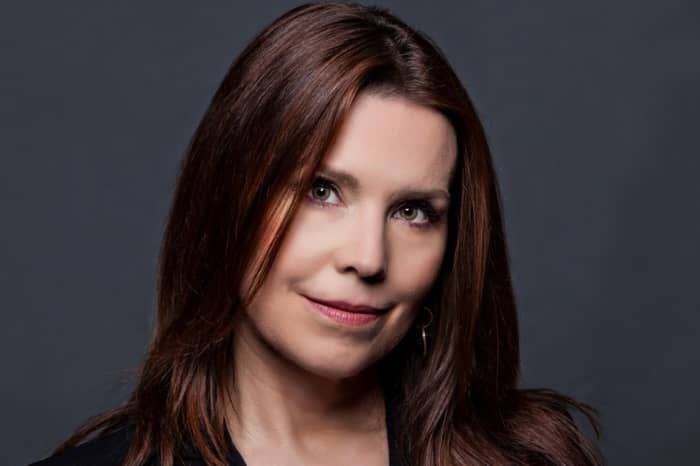I am in my early 50s, divorced and working full time, and have been raising my only child, a teenage daughter, alone for the past 12 years. My daughter is estranged from her father, who pays child support. We live in Connecticut.
My parents are both deceased as of last year. I moved out of the family home 34 years ago. I have one sibling: a slightly older sister who never moved out of the family home, never went to college, never married, never had a driver’s license, and has no children. I don’t believe she has ever had to pay rent.
My parents, my sister and I are civil servants with pensions. My sister has done quite well with a high-school degree, and is already eligible to retire. Her job gives her a lot of time off, including holidays and the entire summer.
When our last parent became ill, she became their caretaker. There was plenty of money between pensions and retirement accounts that she was able to use for home healthcare, medical expenses, household expenses and eventually funeral expenses.
‘She never stopped working’
She never stopped working through all of this, and had power of attorney on all their accounts. She was evasive with me about the amount of money she was overseeing, and I never pushed the issue.
My parents’ house has been paid off for several years now and both parents’ names are on the deed. They had no will, but named us both as equal beneficiaries on all accounts. Those funds have been distributed.
My sister has been avoiding the issue of probate for several months. She continues to be evasive about the continuing costs associated with the house, but assures me everything is being paid. She has a history of procrastination and has been hoarding for decades. As time goes on, there is noticeably less space to stand inside the house.
Through probate, the house and our parents’ belongings are due to be split between the two of us. Since I can’t envision my sister ever finding the wherewithal to move out or prepare the house for sale, I would want her to buy out my half of the house so that my daughter and I can live a more secure life.
Finished paying off loans
We rent, and things have not been easy for us. I paid my own way through college and finished paying all my loans off three years ago. I plan to send my daughter to college in a few years and have a 529 plan for her that’s only worth about $15,000. I’ve been sacrificing a lot to put aside retirement money for a long time, but I will probably never feel confident that it’s enough.
My sister has been busying herself with many activities that she claims are the reason we can’t get this probate process started now. People around me are urging me to be more assertive. I’ve called the appropriate town offices, and I have a certified copy of the deed to the house and some of the applications in hand, but I don’t feel qualified to do this correctly on my own.
I know there are mediators and lawyers that can help, but I don’t know the best way to take control of this situation without spending a ton of money. What do you suggest would be the fairest and fastest way to get this going when one person is passively resisting?
Feeling Stuck
Related: My mom had a trust, so why do we still need probate to settle her estate?
“The good news is that all of the lawyer’s fees will likely be paid out of your parents’ estate, so you will have no upfront legal costs.”
MarketWatch illustration
Dear Stuck,
It’s time to call a lawyer. Delaying this process could cost you dearly.
In Connecticut, you have up to 30 days to file for probate; after that, you could incur fines. “Probate fees are established by statute and are uniform throughout the state,” according to the Connecticut probate-court system. “Interest at the rate of 0.5% per month accrues on all unpaid fees on decedents’ estates beginning 30 days after the date of the invoice, or, if a Connecticut estate tax return has not been filed within the time required, beginning 30 days after the return was due.” You can access an online calculator to estimate probate-court fees here.
The good news is that all of the lawyer’s fees will likely be paid out of your parents’ estate, so you will have no upfront legal costs. The executor should have been chosen by the person who wrote the will; if your sister is unable to take on these responsibilities, talk to a trust-and-estate attorney about petitioning the court to remove your sister as executor. It may be that you decide to keep your sister as executor but, after explaining to her the financial implications, you proceed with the help of your attorney.
Your sister has proven herself to be a hard worker, by your own account, but she needs help with this process, and she needs help with the other aspects of her life. Removing her as executor would be time consuming and onerous. Possible reasons for removing an executor include egregious behavior like stealing from or wasting the assets of the estate, or lack of cooperation with the administration of the estate. Removal of an executor can be a complicated and costly process, and one that risks squandering even more money from your parents’ estate.
Personal issues
The legal aspect to your story has, perhaps inevitably, become intertwined with your personal histories. You identify your sister in your letter primarily by what she does not have: a husband, children, a driver’s license, etc. But she has also proven herself to be capable and have many other positive qualities: She was a caregiver, and worked hard as a civil servant to build up a pension to enable her to retire. What she lacks now is support, which both you and an attorney can provide. The nature of that support is legal, practical and also emotional. Providing the latter may be the key to the rest.
Hoarding disorder is recognized as a mental-health condition by the medical profession. An outsider may see dust and dirt, in addition to cramped and possibly dangerous living conditions, but they don’t always see what lies beneath: fear, pain and potentially other neuropsychiatric disorders, including obsessive-compulsive disorder. Your sister would, of course, need to be diagnosed by a medical professional. Procrastination is also positively correlated with anxiety. Again, outsiders may mistake this for being uninterested or lazy.
It may be that being frustrated with your sister is a familiar feeling, and one you are willing to endure. But just as your sister should not be allowed to let her very significant issues interfere with probating your parents’ estate, you also should not let your relationship with your sister stop you from taking action. First, you will have the legal process, which will unfold if you seek help from an attorney. After that, you will have the equally important task of encouraging your sister to seek the support of a therapist who may be able to help her move forward.
Your probate stalemate shows that no one problem exists in isolation.
You can email The Moneyist with any financial and ethical questions at [email protected], and follow Quentin Fottrell on X, the platform formerly known as Twitter.
The Moneyist regrets he cannot reply to questions individually.
Previous columns by Quentin Fottrell:
Check out the Moneyist private Facebook group, where we look for answers to life’s thorniest money issues. Post your questions, or weigh in on the latest Moneyist columns.
By emailing your questions to the Moneyist or posting your dilemmas on the Moneyist Facebook group, you agree to have them published anonymously on MarketWatch.
By submitting your story to Dow Jones & Co., the publisher of MarketWatch, you understand and agree that we may use your story, or versions of it, in all media and platforms, including via third parties.
Source link
#easy #sister #hoarder #procrastinator #delaying #probate #parents #estate

